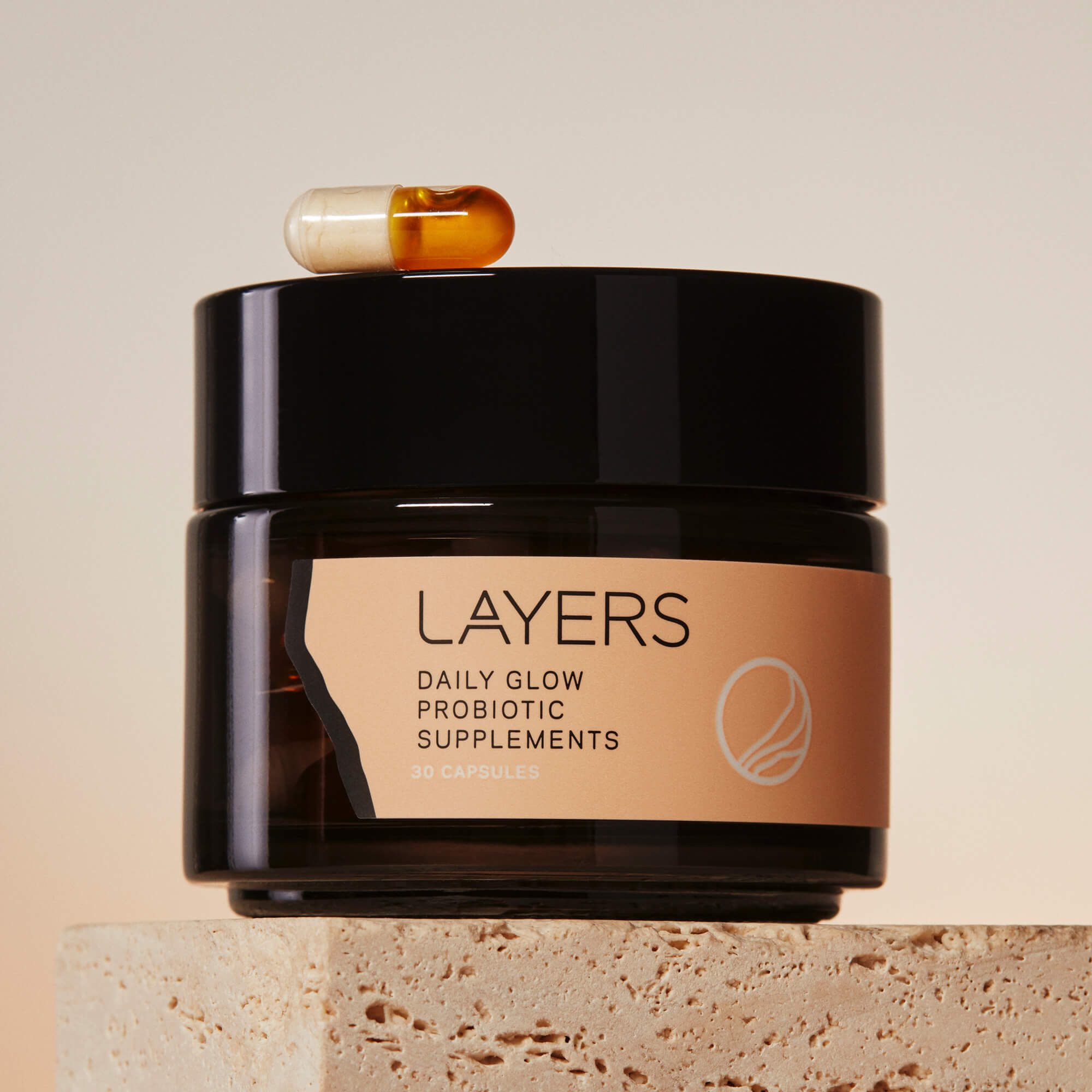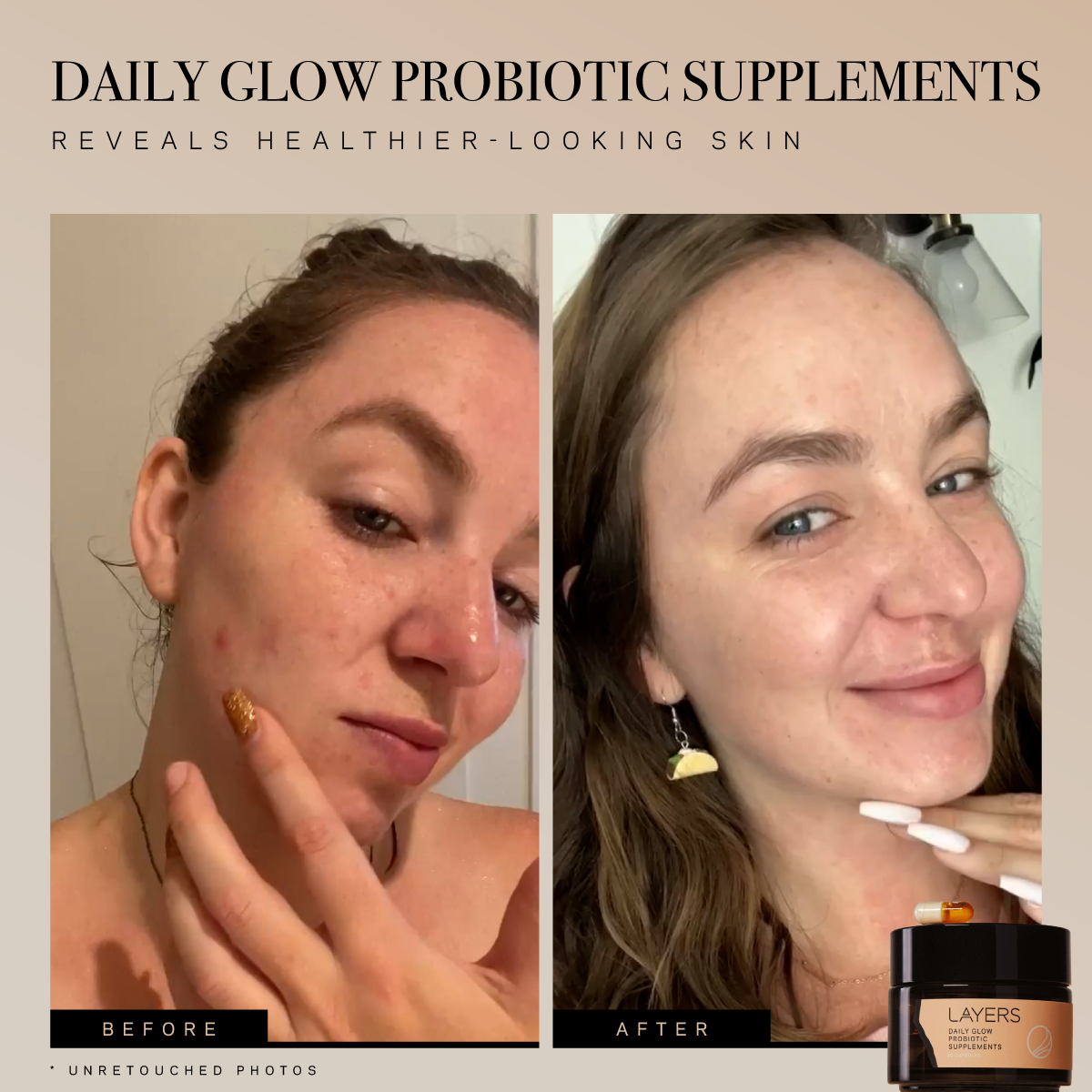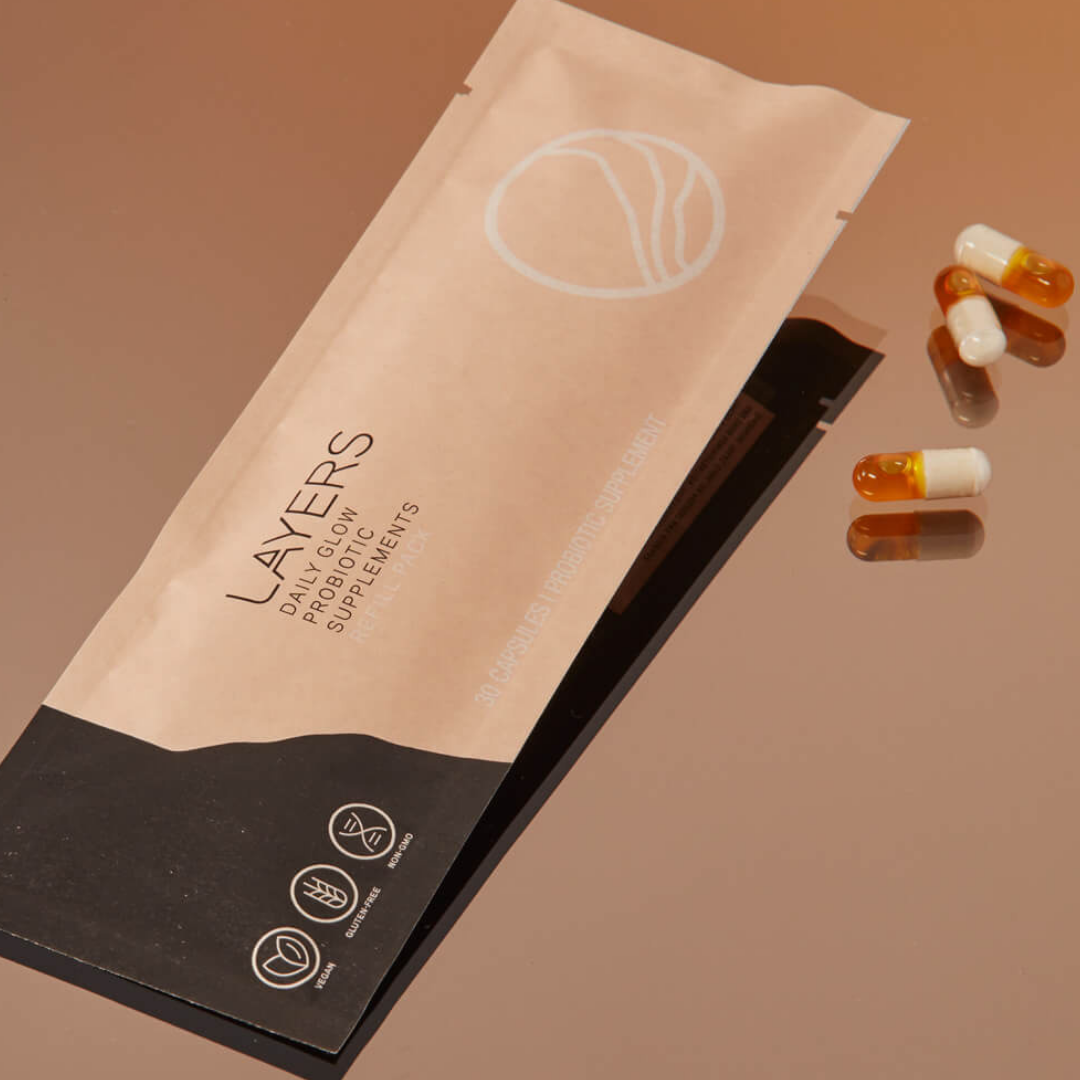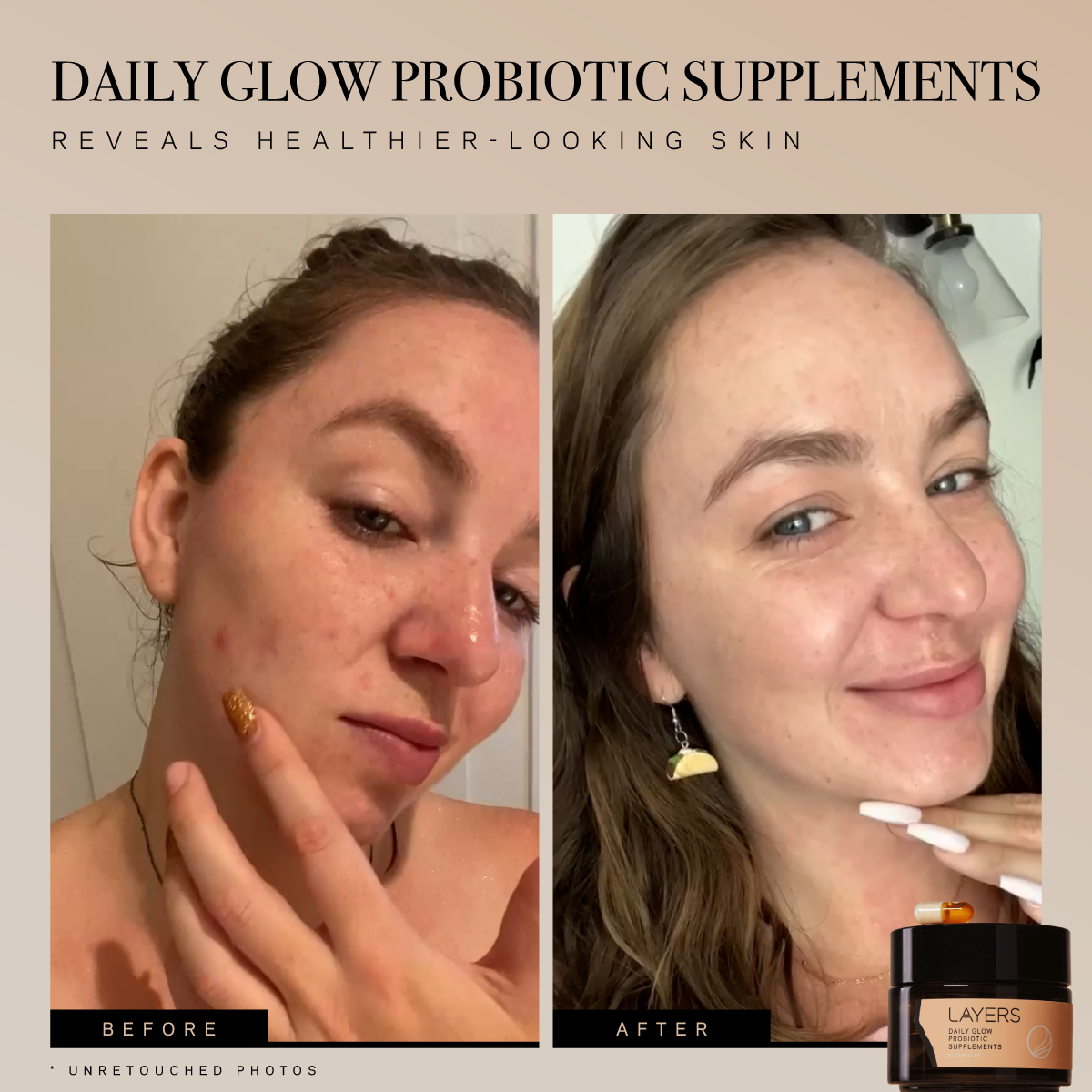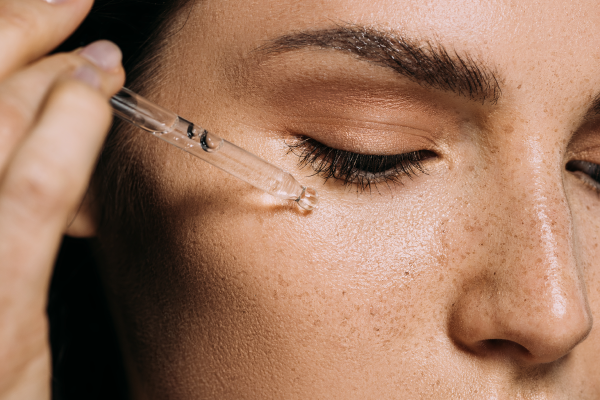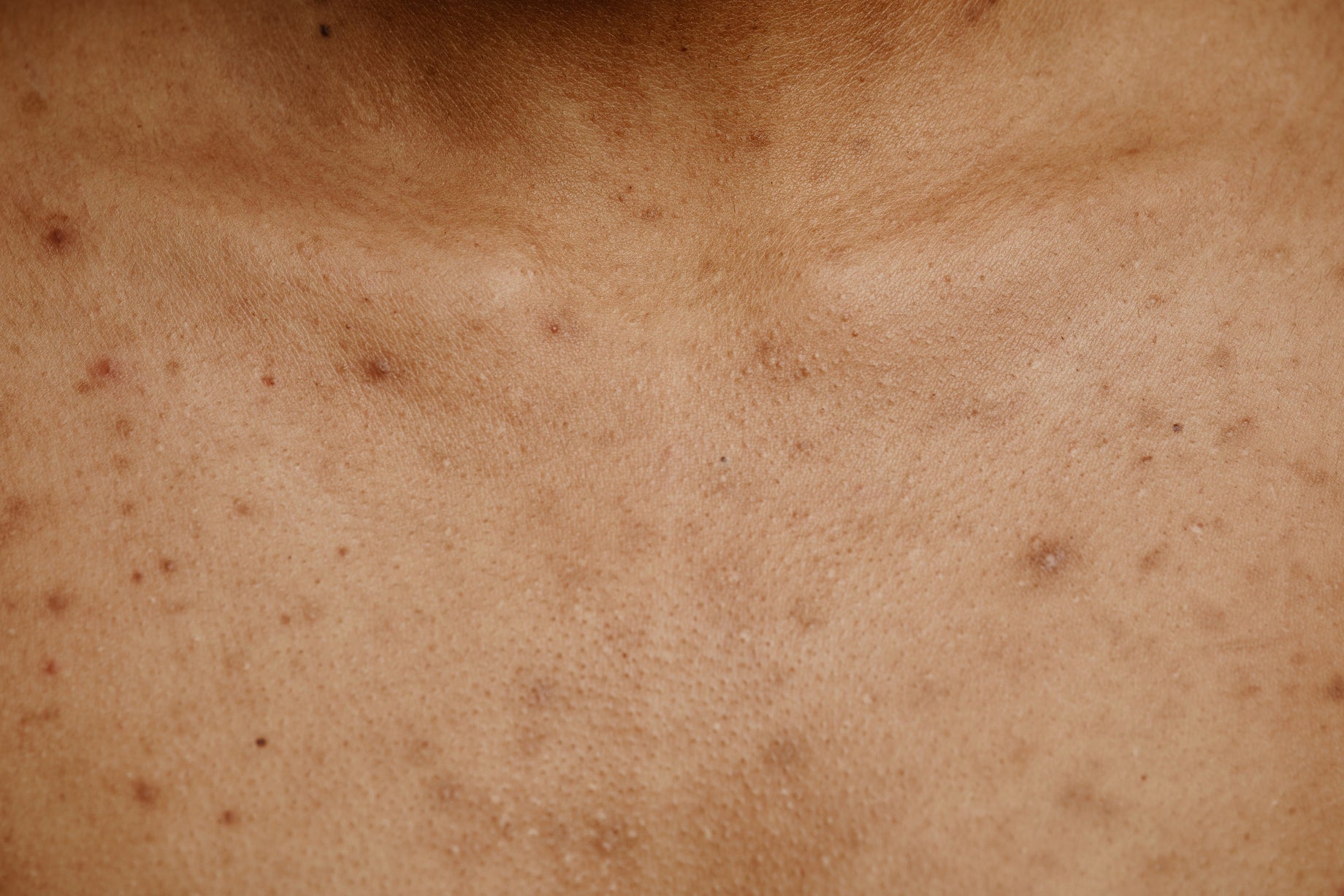Are probiotics the missing link in your skincare routine? Learn the science behind how these powerful allies can help improve the health of your skin.
Probiotic skincare has been growing in popularity, especially in the past decade. Skincare companies are incorporating live bacteria and beneficial ferments into all kinds of products, from cleansers to serums, and more. Probiotic-enhanced products claim to reduce inflammation, enhance the skin’s natural barrier, and improve hydration. So the big question is whether this probiotic skincare trend is actually backed by science.
To understand how and whether it really works, we have to look at the studies. In relation to skincare specifically, scientific exploration is still in its infancy. But more and more studies are being funded to explore the relationship between probiotics and skin health. Here’s what we do know about the potential benefits of probiotics, and how different strains can work to positively affect your skin microbiome.
UNDERSTANDING PROBIOTICS AND THE SKIN MICROBIOME
The skin, much like the gut, is home to a diverse community of bacteria, fungi, and viruses, collectively known as the skin microbiome. This ecosystem of microorganisms is essential in maintaining the health of your skin by acting as a protective barrier, reducing inflammation, and keeping potentially harmful pathogens in check.
If and when this balance is disrupted due to factors like pollution, skincare products with harsh ingredients, or certain lifestyle habits, you begin to notice the effects. Conditions like acne, eczema, rosacea, and dryness will arise or you can experience flare-ups. Probiotics are live beneficial bacteria that work by rebalancing the microbiome.
Research suggests that, when applied to the skin or ingested, certain probiotic strains can positively influence this microbial balance, potentially reducing inflammation, boosting skin resilience, and offering protection against environmental stressors. This is the idea behind probiotic skincare, to directly deliver beneficial bacteria or bacterial extracts to the skin.
THE BENEFITS OF PROBIOTIC SKINCARE: WHAT THE SCIENCE SAYS
Reduces Inflammation and Supports the Skin Barrier
Chronic inflammation is is the main culprit behind acne, eczema, and rosacea. One of the most promising benefits of probiotic skincare is its anti-inflammatory potential. For example, Lactobacillus and Bifidobacterium species are two common probiotics that have been studied for their ability to reduce inflammation in the skin.
-
A 2023 study in The Journal of Allergy and Clinical Immunology found that a probiotic blend consisting of Lactobacillus helveticus, Bifidobacterium longum, Lactobacillus rhamnosus, and Sacchammyces boulardii helped to restore the balance of naturally healthy skin microbiota in patients suffering from atopic dermatitis. The study group was given a topical cream for 28 days. At the end of the study, the opportunistic gram-negative bacteria linked to the skin condition were completely eliminated.
-
A 2021 study in Frontiers in Bioscience-Elite showed that Lactobacillus plantarum extracted from green tea was effective against five skin pathogenic strains related to skin diseases. These included Staphylococcus aureus (responsible for staph infections), Cutibacterium acnes (responsible for acne vulgaris), Candia albicans (responsible for candida infections), Malassezia globosa (responsible for dermatitis and dandruff), and Malassezia restricta (responsible for atopic dermatitis and psoriasis).
Targets Acne by Balancing Skin Microbes
Acne doesn’t discriminate. It’s a troublesome condition that affects people of all ages. One factor is the overgrowth of Cutibacterium acnes, a bacterium that thrives when the skin’s natural balance is disrupted. Probiotic skincare can potentially inhibit the growth of this bacteria by introducing beneficial bacteria that compete for space and resources on the skin’s surface.
-
A 2015 study published in the International Journal of Women’s Dermatology demonstrated that probiotic strains like Lactobacillus paracasei and Lactobacillus reuteri can directly inhibit acne-causing bacteria through the production of antibacterial proteins.
-
A 2022 article in Frontiers in Medicine showed that the topical application of Lactiplantibacillus plantarum over a 4-week period showed a significant improvement in the appearance of acne lesions, as well as a decrease in transepidermal water loss and sebum production.
Improves Hydration and Prevents Premature Aging
Probiotics can also help maintain hydration by strengthening the skin barrier, which prevents moisture loss and increases the skin’s resilience to environmental stressors. This is particularly relevant when it comes to the prevention of premature aging, as a compromised skin barrier is more prone to dryness, wrinkles, and fine lines.
-
An Italian study published in 2023 in Microorganisms showed that Lactobacilus helveticus, a strain found in fermented milk, helped scavenge free radicals responsible for UVB-induced skin photodamage. It was also shown to reduce transepidermal water loss (TEWL) and increase epidermal thickness, the primary concerns behind sagging skin.
-
A 2023 clinical trial studied the effects of Lactiplantibacillus plantarum on the skin. Topical application of this probiotic was shown to significantly increase dermal density (skin thickness), skin hydration, and elasticity. Participants saw marked improvements in the appearance of crow's feet, age spots, smoothness, and radiance.
HOW PROBIOTIC SKINCARE PRODUCTS WORK
The science is clear that probiotic products deliver results. By delivering beneficial bacteria directly to the skin’s surface, topical products instantly target the problem by adding more good bacteria, positively altering the microbial balance.
There are three main types of probiotic-based ingredients used in skincare:
-
Live Cultures: These are actual live bacteria added to products that populate the skin microbiome. Live cultures are generally used in oral probiotics, but they can be difficult to keep shelf-stable. So always check package directions to ensure the viability of the product.
-
Lysates: Lysates are probiotic cell fragments that are easier to incorporate into skincare products. They provide some of the same benefits as live bacteria but are broken down into a purer form, removing the challenges of maintaining live cultures. Topical probiotic products will generally contain shelf-stable lysates.
-
Ferments: Fermented ingredients, like rice or soy, involve a fermentation process using probiotics. These ingredients contain beneficial postbiotics (byproducts of fermentation) that benefit skin texture and improve hydration.
Probiotic skincare shows promising benefits for a whole range of issues. From reducing inflammation to balancing the skin microbiome, and strengthening the skin barrier, certain strains are helping us understand how to target individual issues like acne, eczema, and rosacea. The science is encouraging, and it is still evolving. Probiotic skincare can be a valuable tool for managing your skin health, especially when paired with a balanced diet and a healthy lifestyle.

